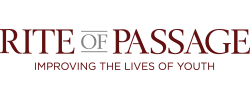Empowerment Through Education
Passageway Scholars Strive to New Heights
Jay’s Story
Anyone who has the privilege of speaking with Jay will inevitably learn multiple science-backed facts centered around self-improvement. He speaks with a scientist’s objective matter-of-factness, while simultaneously exuding warmth and kindness, humbly sharing his abundance of knowledge. His love of learning is contagious, and, despite the unfamiliar learning environment of this COVID era, he has not ceased to pursue an ambitious academic path. Personal Story
Jay recently graduated from Arizona State University (ASU) with a degree in bioengineering, a field that includes rigorous mathematical requirements. Though daunting, Jay felt drawn to bioengineering because he saw it as an opportunity to better understand himself. He could learn about human health optimization and therefore improve his own health. “It really helped [me] understand myself more […] You learn about your own health; you learn about your limitations,” he said. Jay has certainly used his scientific inclinations to focus on his personal health and longevity, and has learned how to formulate his lifestyle in a manner that amplifies his strengths while mitigating his weaknesses, thereby increasing his chances of personal success. But learning such tactics required time and perseverance.
Growing up, Jay lacked a stable homelife, having to move between various foster homes. With complicated family dynamics (Jay has eleven siblings), domestic violence, and often negligent, distant parents, Jay felt that his environment was not conducive to positive growth.
At age sixteen, and without an available foster care placement, he was enrolled at Canyon State Academy (CSA), an ROP facility in Queen Creek, Arizona. Initially, he did not want to be there, but after meeting some of the other students and getting involved in various sports—wrestling, cross country, track and field—Jay grew to like it. Eventually, with the encouragement of CSA’s staff, Jay enrolled at a local community college and received a valuable taste of higher education before transferring to ASU to pursue a bioengineering degree. He had forged this path for himself and enthusiastically embraced the intriguing, albeit difficult, academic exploration of what he had grown to love.
When Jay was younger, he often felt “stupid,” positing that he must have had “mental problems,” but this was primarily a result of lacking a reliable family member for academic accountability and support. Feeling largely alone, and with the insatiable desire to excel in school, he realized that he would have to seek help independently. Jay researched resources online and paid out-of-pocket for counseling services.
At ASU, he partook in the university’s therapy service and felt much better as he finally spoke openly about the

struggles and trauma he experienced as a child. He began to understand that he was not in fact inadequate, but rather lacked resources rather lacked resources and opportunities that could have helped him develop academic-oriented skills. Jay realized, for instance, that a significant hindrance was his poor time-management, so he deconstructed his day and analyzed the times at which he felt the most productive. With this self-collected data, Jay structured his routine around his natural strengths and weaknesses, performing certain tasks at what he determined to be the optimal time for each. With his more efficient schedule, in addition to many diet and lifestyle improvements, Jay thrived—not only academically, but personally.
He has made the deliberate decision to focus on the positive aspects of his life, refusing to spend valuable time on those things which do not contribute to his positive outlook. His enthusiasm and zest for life are evident in his insatiable curiosity, but also in his inherent resilience. Jay was forced to make several difficult decisions, one of which was to leave his family to pursue his education. “I have to view everything that’s positive and apply that for myself,” he said, “while at the same time being far from them.” Faced with the unfortunate realization that his home environment was not conducive to growth, Jay knew he had to leave. “If I’m around people that are a certain way, I will become that.”
But Jay is currently only looking towards his future. This upcoming school year, he will matriculate at ASU’s masters program for computer science. But, he says, he eventually wants to earn a PhD in engineering or become a doctor. Still, Jay is drawn towards the more research-oriented elements of medicine, as he prefers to delve deep into a subject and partake in the development of specific therapies, as opposed to their application. He envisions himself enjoying the field of synthetic biology, which, he says, “loosen[s] the disconnect between medicine and engineering.”
The possibilities are vast, and with the guidance he received at ROP, and later at ASU from his professors— his greatest sources of inspiration —Jay has taken the initiative to construct an enjoyable and rewarding life, one rife with opportunities to ceaselessly learn and grow. For Jay, information is power, which is why he wishes to share his story. “There could be a lot of schools, or resources, or educational opportunities,” he said, “but you might not be talking to the right people; you might not know what’s there.” He learned that, with proper communication, one can access a host of resources about which one would have otherwise been unaware. Education empowered him, and with this knowledge, he intends to empower others, too.
*Jay’s name has been changed to maintain his anonymity.
This article, Passageway Scholars Strive to New Heights: How we are Empowering Rite of Passage Alumni Through Education, was originally written as an article, Empowerment Through Education, in our 2021 Rite of Passage Magazine. To read the full magazine please click here.

